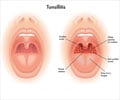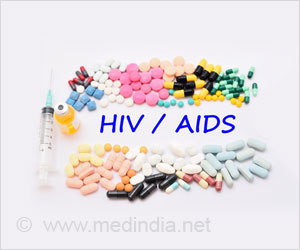A new study has revealed that tonsils may create way for transmission of HIV during oral sex.
A new study has revealed that tonsils may create way for transmission of HIV during oral sex.
Though researchers emphasize that chances of HIV transmission through oral sex are low to warrant preventive tonsillectomies, the findings may still be useful in preventing transmission of the virus from mothers to their children through breastfeeding.Niki Moutsopoulos at the National Institute of Dental and Craniofacial Research in Bethesda, Maryland, US, and her colleagues studied gum tissues sample from dental patients for dental crowns, and tonsils samples from individuals as a apart of a treatment for sleep apnoea.
The team tried to assess the levels of proteins in these tissues.
Twelve pct of the tonsil cells had protein CD4 that are susceptible to infection by the virus. By comparison, only 4 pct of the gum cells contained this protein.
A genetic analysis also revealed that the CXCR4 gene, which aids the virus to infect cells, was 11 times more active in the tonsils than in the gum samples.
"It's a further piece of the jigsaw puzzle," New Scientist quoted John Greenspan, director of the AIDS Research Institute at the University of California in San Francisco, US, as saying.
The researchers suggested that since evidence show that HIV can spread through oral sex in exceptional cases, people should use condoms.
"I think that would be a stretch. We can't go taking out every tissue that HIV could pass through," says Moutsopoulos.
“Though, that if future studies bear out a link between tonsils and HIV transmission, there could be implications for blocking the spread of the virus from mother to child in parts of the world where infant formula and antiretroviral drugs are in short supply. Scientists have estimated that a child has a 15 pct chance of acquiring the virus through breastfeeding within the first year of life,” she added.
Source-ANI
LIN/C











